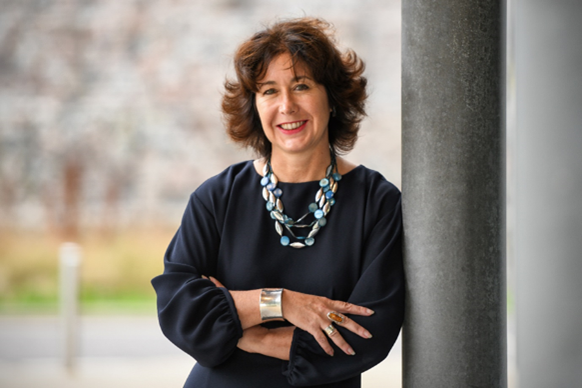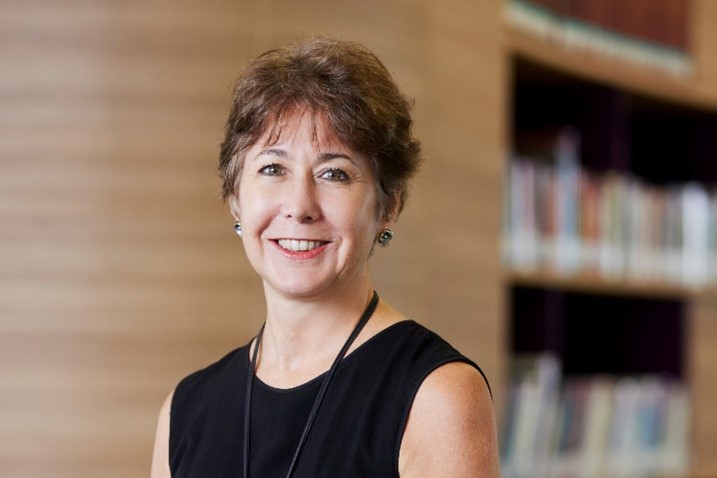News: Professor Jennifer Cleland Receives Prestigious KIPRIME 2024 Award
 | By Kelvin Yap, Assistant Manager, Digital Content & Social Media |

Professor Jennifer Cleland, Vice-Dean of Education at LKCMedicine, has been awarded the Karolinska Institutet Prize for Research in Medical Education (KIPRIME) 2024. This award recognises her important contributions to medical education research, particularly her work in developing a more effective and inclusive approach to training future healthcare professionals. She is the 11th recipient of this prestigious award and is notably only the second woman and the first person based in Asia to be honoured. The award was announced during the Association for Medical Education in Europe (AMEE) Annual Meeting in Basel, where Professor Cleland also served as Programme Chair.

With over two decades of experience, Prof Cleland’s career began as a clinical psychologist, and she has since made significant contributions to medical education. Her research not only addresses complex challenges in the field but has also helped shape policy and practice in the UK and internationally. Her research has covered key areas of medical education, from improving selection processes for medical schools to addressing diversity in the medical workforce. In addition to her research, she has mentored many future leaders in medical education.
“Digital health education is, I believe, an area of research which is often poorly conceptualised and theorised. I hope to use this new role as leverage to support and encourage research that asks better questions about technology and its use, links this to theory that can be used to frame both subjects and approaches to inquiry, and links these in turn to selecting methodologies, study designs, and methods,” said Prof Cleland.
 Of late, her focus has been on leading a team in education to enhance the LKCMedicine MBBS programme ahead of the transition of LKCMedicine from a joint medical school to an NTU medical school after 2028.
Of late, her focus has been on leading a team in education to enhance the LKCMedicine MBBS programme ahead of the transition of LKCMedicine from a joint medical school to an NTU medical school after 2028.
She said, “Medicine and healthcare are rapidly changing. Emerging technologies are revolutionising communication, health analytics and treatment, and patient care. The LKCMedicine aims to prepare doctors who are well-equipped in adapting to change and provides high-quality care to their patients. We are enhancing our MBBS programme to equip our students to redefine medicine and healthcare delivery.”
Her other focus is to grow and provide a catalyst to the medical education research in Singapore.
“There are many differences between the academic context and culture of Scotland and Singapore. While education and medical education are valued in Singapore, associated research is in its infancy. I started by focusing on culture change to encourage and empower others to learn, grow and upskill. At the core of my strategy is encouraging a global mindset so my team and colleagues with whom I work seek best educational evidence to inform their praxis and research, while at the same time recognising the value of their own non-Western perspectives and context in research endeavours.
The scholarly outputs to date are small compared to those from established health professions/medical education research units but growing steadily, increasing the representation of knowledge and practices from Asia into medical and health professions education journals. Given our “point of entry” and the disruption of the Covid-19 pandemic, I am extremely proud of progress to date. It is also worth mentioning that one of my first successes at my current university was to develop a Teaching and Scholarship academic career track, recently approved by the University’s Academic Affairs Committee. Educational research is a core activity in this track. This may sound a small accomplishment to those from countries in which health professions educational research is well-established: it was a massive achievement in the context of Singapore,” Prof Cleland said.
Prof Cleland has recently been invited to take on the role of Director for the WHO Collaborating Centre (CC) for Digital Health and Health Education based in Singapore.

